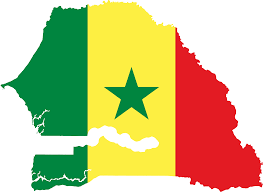
Left pan-Africanism from new President Bassirou Diomaye Faye and new Prime Minister Ousmane Sonko in Senegal
Young pan-African politicians, Bassirou Diomaye Faye and Ousmane Sonko have taken the leadership of Senegal as President and Prime Minister respectively, through an election. To lift Senegal out of poverty, they will focus on decolonisation and development, particularly in food, energy and finance. Education is also a priority.
Accelerating outcomes of pan-Africanism
A priority of the new government is accelerating the outcomes of pan-Africanism by breaking away from old ways that are clearly manipulable by foreign countries. In the case of Senegal, the Macky Sall government suppressed pan-African youth voices, and aligned with colonial France. For their political activism, Faye, Sonko and others were harassed and jailed. Sonko was banned from contesting for presidency.

The challenge with the CFA
The new government’s first target is the CFA currency, which is controlled by France, through a colonial arrangement the European country has refused to let go. The actions of France show that colonisation has not ended, in spite of all the rhetoric that Africans were ‘freed and are independent, therefore, their poverty or lack of development is of their own making’.
In 2022 West African states that are forced to use the French currency agreed to start their own Eco currency. France teamed up with Ivory Coast President to block the move, and the Eco project failed. France quickly made some cosmetic changes to the currency arrangement but refused to let the CFA go.
All in all, 14 countries in Africa use the CFA.
The duo of Faye and Sonko promised to return all of Senegal’s gold ‘safely’ stored in France to ‘keep the CFA stable’ and creating their own central bank to enable them to cut ties with France. Currently, Senegal’s reserves are controlled by the French Central Bank.
French sabotage
France has been resisting decolonisation for long. In 1960, when Guinea introduced their currency and central bank, they created fake money to an extent that the new currency became worthless. Mali was sabotaged by France in 1967. In Ivory Coast, the President Laurent Gbagbo who wanted to leave the CFA ended up at the International Criminal Court. France ensured that these countries did not get loans from banks and that French companies pulled out or threatened to do so.
Left pan-Africanism seems to be the answer.

How is this important to social work and development? What are the implications?
- It is important to decolonise education, beginning at primary and secondary schools, and then higher education.
- Finance sovereignty is crucial for poverty eradication and development, from family to continental level.
- Clarity of policies by African leaders is crucial, and this includes having decolonisation plans in place, in both the short and long term.
- Young people are concerned about colonial ties, and the limited impact of contemporary pan-Africanism and are ready to take a new direction for the liberation and development of Africa.
Use the form below to subscibe to Owia Bulletin.
Discover more from Africa Social Work & Development Network | Mtandao waKazi zaJamii naMaendeleo waAfrika
Subscribe to get the latest posts sent to your email.




You must be logged in to post a comment.